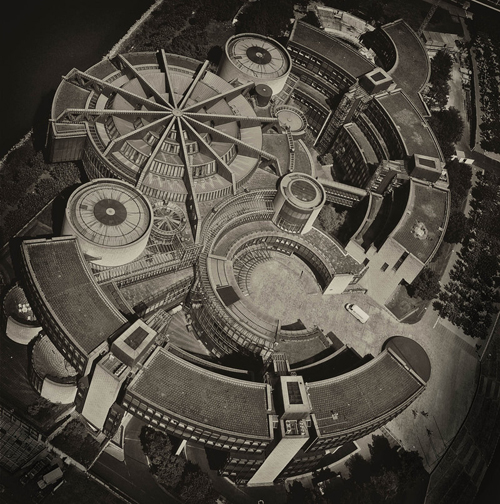How Should I Know how Testing Is Going to Be in 20 Years?
28.02.12 - 21:39 - Filed in: Software Testing

image credit: http://j.mp/y6XGfm
Many people have wanted to look in the future and see how things are going there. This is what I am about to do right now. I can tell you exactly how software testing will be in the year 2032. Want to hear more? Ok, here we go:
It will be different
I have to admit that this was kind of anticlimactic and maybe even a bit disappointing to the ones among you who are always keen to get all the nice little details served on a dinner plate and spoon-fed to your mouths. Sorry, I have to let you down. Well, to be honest, no, I am not really sorry.
Go back to 1992. Almost no internet. No smart phones. Very few testers. Mostly highly scripted test cases in waterfall processes. Who would have thought how today’s testing world would look like. Although, this video is kind of interesting. (As a side note: it also reflects the role thinking of 1969.)
Assuming that there is an acceleration in the development of new technology and a somewhat less speedy development on the human side it would be crazy for someone to “know” about the future. This highly dynamic and complex system is not very transparent for crystal ball predictions. So, don’t fool yourself into believing that is possible.
What is thinkable?
Computer science realizes that it is inherently a human and social science. Therefore a lot of thinking will go into how teams can collaborate better. The stereotype of the non-communicative nerd developer will eventually prove to be wrong.
Software development practices most certainly evolve in a direction that becomes even less error prone. Future compilation mechanisms will prevent many more of the errors from happening. Hence, less of the “stupid” sort of bugs. That means it will be more difficult to find bugs.
Testers on the other hand will have fully understood the concept of applied epistemology and will use a rich set of heuristics during every testing activity while having stopped completely to whine about their poor state of affair.
Hm, some spacey element is still missing here. Ahm, ok, let them all have a huge gadgetry of enhanced reality goggles and exoskeleton support with intelligence enhancing psycho pills implanted directly in the brain. And maybe find use for some of these, too. Or something the like.
What won’t happen?
Everybody who thinks there won’t be any testers in 20 years is indulging in crazy talk. No, we won’t have everything automated because thinking cannot be automated and therefore the design of automation needs human brains. Ideally, brains with a tester’s mindset. Running automated tests is checking, not testing.
Automation is important, too, but it is not everything that is needed for wholesome testing. And just think of it: Writing code in 2032 will still be a very, very manual process in the deepest sense of its meaning, assuming that developers still use their hands to write it.
What can we wish for?
I would wish that testers in general develop a pride for their craft. Whenever somebody with the title “tester” says she/he hasn’t read anything about testing it will be as if somebody was swearing filthily in a church while the pope himself is present. Unheard of.
So what is my message here?
I think it would make sense for all us testers to spend some time reflecting on where the journey is about to go. On the way we should all keep learning new stuff and keep our senses alert and our brains busy. Let’s learn new stuff every day.
This morning testing was somewhere, then the day passed and already now it has progressed to the next stage. I am very curious to know how it is going to be in the future.
What’s your view? How do you think software testing will evolve over the next 20 years? If you could influence it, what spin would you give to software testing? What is it you would like to see more? What less? Tell me more in the comments below.
blog comments powered by Disqus